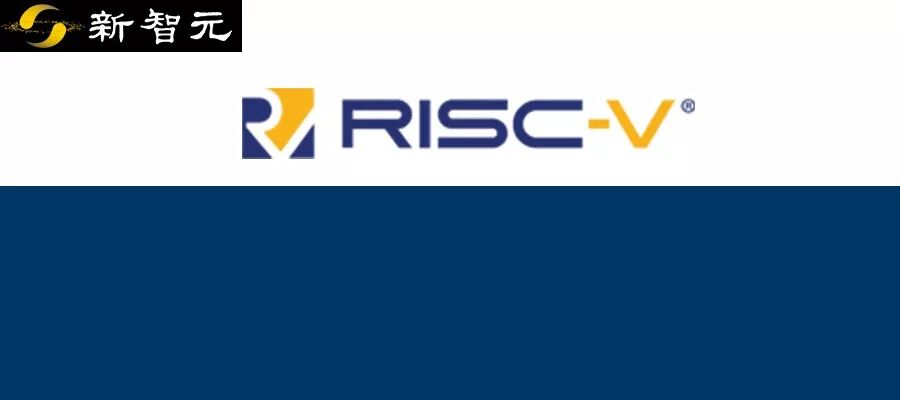
New Intelligence Report
Source: Reuters
Editor: Zhang Jia
[New Intelligence Overview] According to Reuters, the non-profit RISC-V Foundation is set to relocate its headquarters to the neutral country of Switzerland. Huawei supports this move as it is beneficial for reducing political interference from the U.S. government in the open-source community. However, even with the relocation of RISC-V’s headquarters, the current export bans will not be affected. Open-source is more important than where the headquarters is located. Join the New Intelligence AI community to discuss with AI experts.
According to Reuters, several foreign members of the non-profit RISC-V Foundation expressed concerns about potential trade restrictions from the U.S., leading this semiconductor technology organization, which was previously supported and supervised by the Pentagon, to relocate its headquarters to the neutral country of Switzerland.
“From around the world, we have heard a sentiment that says if companies are not in the U.S., we will feel more comfortable,” said RISC-V Foundation CEO Calista Redmond: “The RISC-V Foundation’s move aims to ensure that universities, governments, and companies outside the U.S. can continue to assist in the development of open-source chip architecture technology.”
Redmond stated that the foundation has not encountered any restrictions in its global collaborations so far, but members are “concerned about potential geopolitical disruptions.” She mentioned that the board of the foundation unanimously approved this move but declined to disclose which members prompted it.Bao Yungang: This news is expected to be officially announced at next month’s RISC-V Summit.The RISC-V Foundation was established in 2015 to set standards for core chip architecture and to authorize who can use the RISC-V trademark on products, similar to how other technology organizations license Wi-Fi and Bluetooth chips. However, they do not own or control the technology.Over 325 companies or other entities have paid to become members of the foundation, including chip suppliers from the U.S. and Europe, such as Qualcomm, NXP Semiconductors, and Chinese companies like Alibaba and Huawei.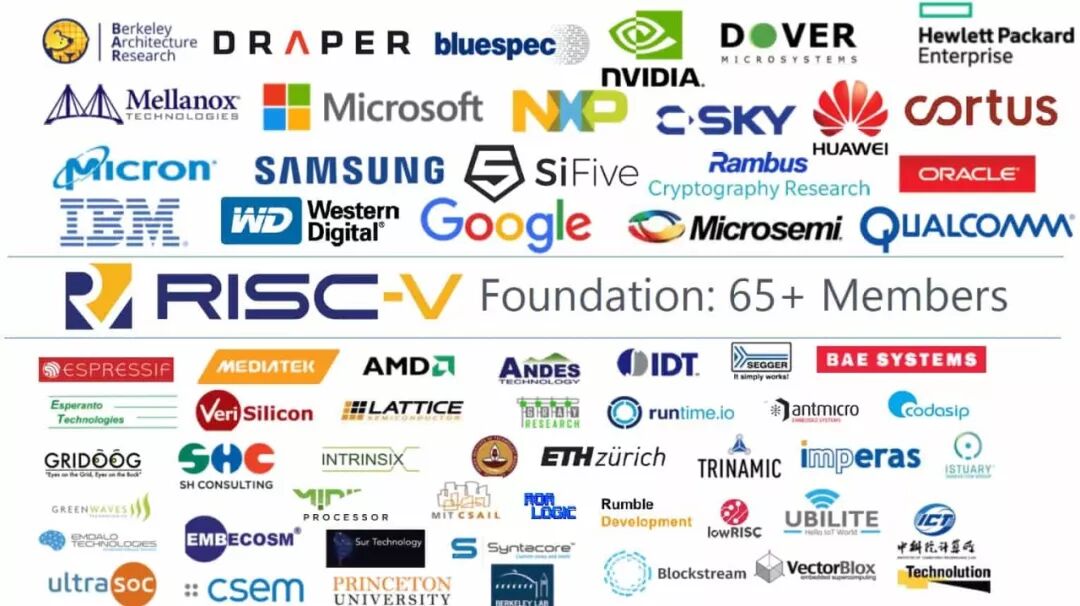 Bao Yungang, Director of the Advanced Computer Systems Research Center at the Institute of Computing Technology, Chinese Academy of Sciences, and Secretary-General of the China Open Instruction Ecosystem (RISC-V) Alliance, shared his views on the relocation of RISC-V’s headquarters on Weibo:
Bao Yungang, Director of the Advanced Computer Systems Research Center at the Institute of Computing Technology, Chinese Academy of Sciences, and Secretary-General of the China Open Instruction Ecosystem (RISC-V) Alliance, shared his views on the relocation of RISC-V’s headquarters on Weibo: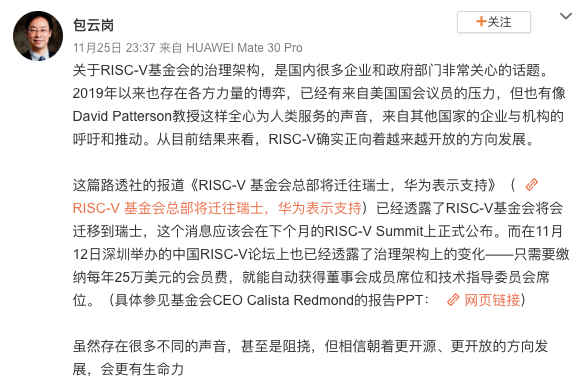 “This Reuters report has revealed that the RISC-V Foundation will relocate to Switzerland, this news is expected to be officially announced at next month’s RISC-V Summit. Additionally, at the China RISC-V Forum held in Shenzhen on November 12, changes in governance structure were also revealed—by paying an annual membership fee of $250,000, one can automatically obtain a seat on the board and the technical advisory committee.”
“This Reuters report has revealed that the RISC-V Foundation will relocate to Switzerland, this news is expected to be officially announced at next month’s RISC-V Summit. Additionally, at the China RISC-V Forum held in Shenzhen on November 12, changes in governance structure were also revealed—by paying an annual membership fee of $250,000, one can automatically obtain a seat on the board and the technical advisory committee.”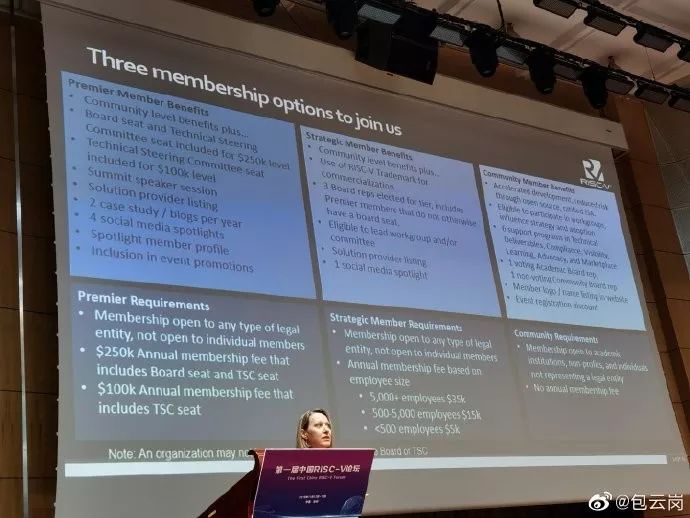 Bao Yungang also mentioned: Since 2019, there has been a struggle among various forces, with pressure from U.S. Congress members, but there are also voices like Professor David Patterson who are dedicated to serving humanity, as well as calls and pushes from companies and institutions in other countries. From the current results, RISC-V is indeed moving towards a more open direction.In Bao Yungang’s view: Although there are many different voices, even obstacles, he believes that developing in a more open-source and open direction will be more vital.Huawei supports the relocation, which is beneficial for reducing political interference from the U.S. government in the open-source community.The current seven members of the board are all located in North America. Redmond stated that after this move, the board of the foundation will expand, with more members from Europe and Asia. Reuters could not confirm whether any Chinese companies plan to join the board.Lawyer Andrew Updegrove, who works with standard organizations, stated that regardless of where the RISC-V Foundation’s headquarters is, U.S. restrictions on transferring U.S.-origin technology to Chinese companies still apply.The foundation’s CTO Lars Reger mentioned that one of the foundation’s members, NXP Semiconductors from the Netherlands, stated that customers are requesting detailed explanations of the chip technology’s origins, as they do not want to be cut off in future trade disputes.In response to Reuters’ inquiries, a Huawei spokesperson stated: “We support the RISC-V Foundation in establishing Switzerland as a neutral place for open-source development. It is important for the industry to make open-source as open as possible.” He stated that RISC-V “fits well with Huawei’s vision of this heterogeneous open world.”Regarding this news, New Intelligence also discussed with some Huawei-related individuals, who generally expressed support for RISC-V’s relocation to Switzerland, as this move is beneficial for reducing political interference from the U.S. government in the open-source community.However, even with the relocation of RISC-V’s headquarters, the current export bans will not be affected. This is because any technology involving U.S. companies in its development is subject to U.S. export control laws, so the relocation of the RISC-V Foundation to Switzerland addresses governance issues within the community, not export control issues, which must still be adhered to.However, if the technology is open-source (i.e., open and widely available), then it is not subject to export control restrictions.In short: Open-source is more important than where the headquarters is located. This is why companies like Huawei and Alibaba strongly advocate for open-source.Academician Ni Guangnan Optimistic about RISC-V’s FutureRecently, at the “Software Green Alliance Developer Conference,” Chinese Academy of Engineering Academician Ni Guangnan also expressed his views on RISC-V:“In the future, we should increase our investment in open-source software, including investing in open-source foundations or establishing certain China-led open-source foundations to increase our voice in open-source foundations, open-source communities, and the formulation of open-source licenses.Additionally, even if open-source foundations and open-source licenses themselves do not involve export controls, code hosting platforms in certain countries may cause the uploading and downloading of open-source project code to be subject to export controls.The recent incident of GitHub blocking user accounts is an example.Therefore, it may be considered to establish some code hosting platforms for open-source projects in China and study how multiple code hosting platforms can synchronize and coordinate work to avoid risks such as export controls.“
Bao Yungang also mentioned: Since 2019, there has been a struggle among various forces, with pressure from U.S. Congress members, but there are also voices like Professor David Patterson who are dedicated to serving humanity, as well as calls and pushes from companies and institutions in other countries. From the current results, RISC-V is indeed moving towards a more open direction.In Bao Yungang’s view: Although there are many different voices, even obstacles, he believes that developing in a more open-source and open direction will be more vital.Huawei supports the relocation, which is beneficial for reducing political interference from the U.S. government in the open-source community.The current seven members of the board are all located in North America. Redmond stated that after this move, the board of the foundation will expand, with more members from Europe and Asia. Reuters could not confirm whether any Chinese companies plan to join the board.Lawyer Andrew Updegrove, who works with standard organizations, stated that regardless of where the RISC-V Foundation’s headquarters is, U.S. restrictions on transferring U.S.-origin technology to Chinese companies still apply.The foundation’s CTO Lars Reger mentioned that one of the foundation’s members, NXP Semiconductors from the Netherlands, stated that customers are requesting detailed explanations of the chip technology’s origins, as they do not want to be cut off in future trade disputes.In response to Reuters’ inquiries, a Huawei spokesperson stated: “We support the RISC-V Foundation in establishing Switzerland as a neutral place for open-source development. It is important for the industry to make open-source as open as possible.” He stated that RISC-V “fits well with Huawei’s vision of this heterogeneous open world.”Regarding this news, New Intelligence also discussed with some Huawei-related individuals, who generally expressed support for RISC-V’s relocation to Switzerland, as this move is beneficial for reducing political interference from the U.S. government in the open-source community.However, even with the relocation of RISC-V’s headquarters, the current export bans will not be affected. This is because any technology involving U.S. companies in its development is subject to U.S. export control laws, so the relocation of the RISC-V Foundation to Switzerland addresses governance issues within the community, not export control issues, which must still be adhered to.However, if the technology is open-source (i.e., open and widely available), then it is not subject to export control restrictions.In short: Open-source is more important than where the headquarters is located. This is why companies like Huawei and Alibaba strongly advocate for open-source.Academician Ni Guangnan Optimistic about RISC-V’s FutureRecently, at the “Software Green Alliance Developer Conference,” Chinese Academy of Engineering Academician Ni Guangnan also expressed his views on RISC-V:“In the future, we should increase our investment in open-source software, including investing in open-source foundations or establishing certain China-led open-source foundations to increase our voice in open-source foundations, open-source communities, and the formulation of open-source licenses.Additionally, even if open-source foundations and open-source licenses themselves do not involve export controls, code hosting platforms in certain countries may cause the uploading and downloading of open-source project code to be subject to export controls.The recent incident of GitHub blocking user accounts is an example.Therefore, it may be considered to establish some code hosting platforms for open-source projects in China and study how multiple code hosting platforms can synchronize and coordinate work to avoid risks such as export controls.“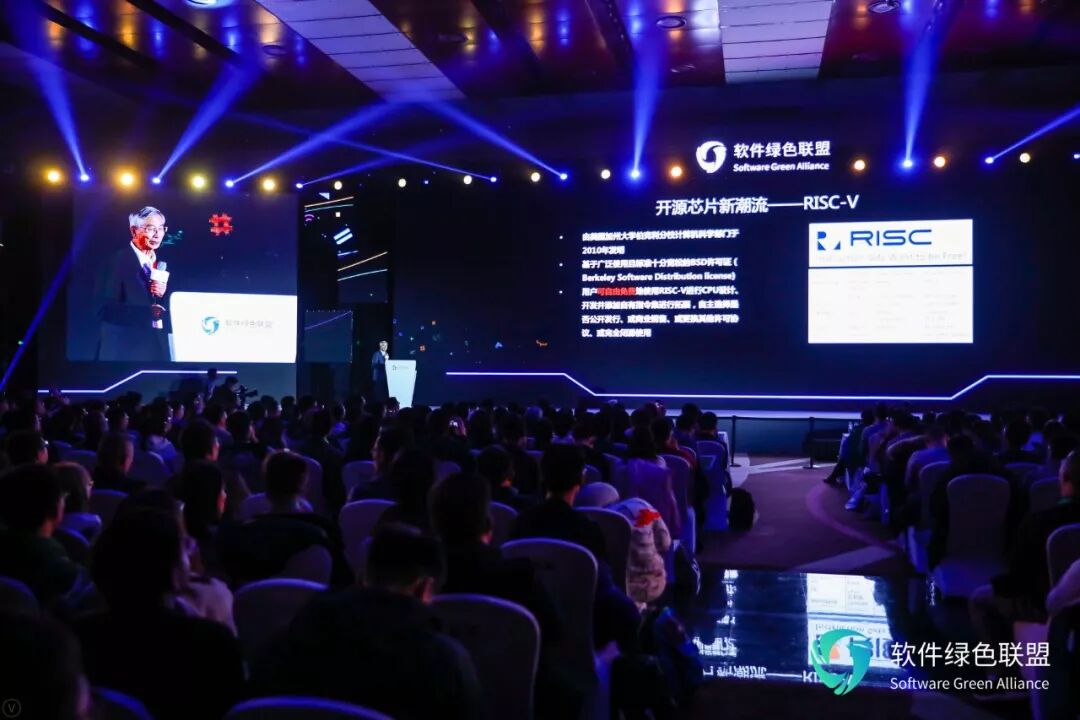 In summary, developing open-source software is necessary for implementing open innovation and aligns with the common interests of people worldwide.Imposing export controls and sanctions on open-source software by certain countries goes against the original intention of open-source software and is unpopular.
In summary, developing open-source software is necessary for implementing open innovation and aligns with the common interests of people worldwide.Imposing export controls and sanctions on open-source software by certain countries goes against the original intention of open-source software and is unpopular.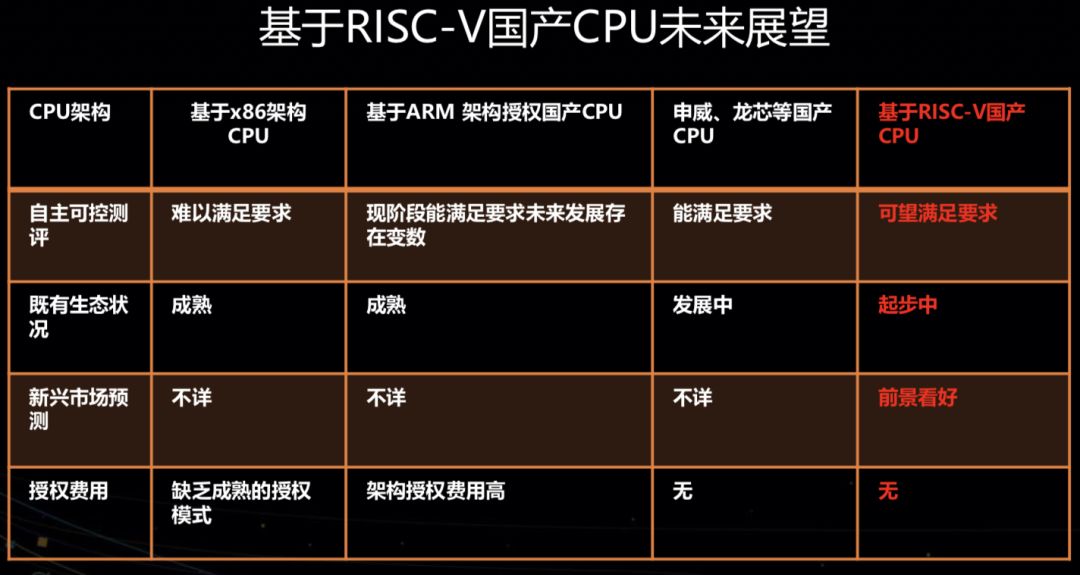 Academician Ni Guangnan is very optimistic about the prospects of open-source chips: “In the future, RISC-V is likely to become one of the world’s mainstream CPUs, thus forming a pattern in the CPU field where Intel, ARM, and RISC-V share the market.”There are differing voices within the U.S.: China is trying to bypass our export control system.Regarding the RISC-V Foundation’s headquarters moving to Switzerland, there are differing opinions within the U.S.Former Deputy Secretary of Commerce William Reinsch, who was responsible for export management during the Clinton administration, stated that due to U.S. restrictions on dealing with certain Chinese tech companies, the foundation’s move from Delaware to Switzerland may signal further technology migration.“This sends a message to the U.S. government. That is, if it is too tight, this kind of thing will happen. In the global supply chain, companies have choices, one of which is to go overseas,” Reinsch said.The U.S. Department of Commerce stated in a statement to Reuters that its control measures aim to protect U.S. national security and “ensure that bad actors cannot obtain technology that harms U.S. citizens or interests while promoting innovation to maintain U.S. technological leadership.” The Department also stated that it regularly holds meetings with private enterprises to assess market conditions and the effectiveness of its regulatory enforcement.Some Republican lawmakers in the U.S. expressed concern that the U.S. would lose influence over the RISC-V chip architecture, which can be used to manufacture microprocessors for almost every type of electronic device, making it a crucial component of the modern economy. This technology originated from the University of California, Berkeley, and was later funded by the Pentagon’s Defense Advanced Research Projects Agency (DARPA).Lawmakers warned that Chinese members in the foundation could influence the development of this technology to aid China’s semiconductor industry.Wisconsin Republican Representative Mike Gallagher told Reuters: “China is trying to bypass our export control system to support companies like Huawei, and we cannot let it succeed.”Arkansas Republican Senator Tom Cotton stated that ensuring the foundation can retain Chinese members through relocation is shortsighted. He added, “If a technology foundation built with U.S. public funds is utilized by other countries to develop technology, that is also outrageous.”Redmond stated in a follow-up email after her interview with Reuters that given that this technology is open-source and available for anyone to use, she does not believe this move would violate U.S. national interests.A DARPA spokesperson stated that the agency intends to make the RISC-V technology content it funds publicly available to companies and scholars worldwide.Morgan Reed, president of The App Association, compared the work of the RISC-V Foundation to the efforts of U.S. and Chinese companies jointly developing Wi-Fi chip standards.“The idea that we can prohibit China from participating in standard-setting with the U.S. and EU is untenable,” Reed said, “China is a very important manufacturer and end market that cannot be ignored.”Limiting Huawei could lead to the standard-setting moving out of the U.S., resulting in “serious risks.”The RISC-V Foundation announced at a meeting last December that it would seek a “neutral” country to establish itself, and then made the formal decision to move to Switzerland earlier this year, a decision that has attracted widespread public attention. Redmond stated that this move is expected to receive final approval in Switzerland.Redmond stated that since its inception, Chinese companies have been able to use the RISC-V architecture, which is publicly available.In July of this year, Alibaba’s T-Head released the Xuantie 910, claimed to be the industry’s most powerful RISC-V processor. It can be used to design and manufacture high-performance edge chips for applications in 5G, artificial intelligence, and autonomous driving.
Academician Ni Guangnan is very optimistic about the prospects of open-source chips: “In the future, RISC-V is likely to become one of the world’s mainstream CPUs, thus forming a pattern in the CPU field where Intel, ARM, and RISC-V share the market.”There are differing voices within the U.S.: China is trying to bypass our export control system.Regarding the RISC-V Foundation’s headquarters moving to Switzerland, there are differing opinions within the U.S.Former Deputy Secretary of Commerce William Reinsch, who was responsible for export management during the Clinton administration, stated that due to U.S. restrictions on dealing with certain Chinese tech companies, the foundation’s move from Delaware to Switzerland may signal further technology migration.“This sends a message to the U.S. government. That is, if it is too tight, this kind of thing will happen. In the global supply chain, companies have choices, one of which is to go overseas,” Reinsch said.The U.S. Department of Commerce stated in a statement to Reuters that its control measures aim to protect U.S. national security and “ensure that bad actors cannot obtain technology that harms U.S. citizens or interests while promoting innovation to maintain U.S. technological leadership.” The Department also stated that it regularly holds meetings with private enterprises to assess market conditions and the effectiveness of its regulatory enforcement.Some Republican lawmakers in the U.S. expressed concern that the U.S. would lose influence over the RISC-V chip architecture, which can be used to manufacture microprocessors for almost every type of electronic device, making it a crucial component of the modern economy. This technology originated from the University of California, Berkeley, and was later funded by the Pentagon’s Defense Advanced Research Projects Agency (DARPA).Lawmakers warned that Chinese members in the foundation could influence the development of this technology to aid China’s semiconductor industry.Wisconsin Republican Representative Mike Gallagher told Reuters: “China is trying to bypass our export control system to support companies like Huawei, and we cannot let it succeed.”Arkansas Republican Senator Tom Cotton stated that ensuring the foundation can retain Chinese members through relocation is shortsighted. He added, “If a technology foundation built with U.S. public funds is utilized by other countries to develop technology, that is also outrageous.”Redmond stated in a follow-up email after her interview with Reuters that given that this technology is open-source and available for anyone to use, she does not believe this move would violate U.S. national interests.A DARPA spokesperson stated that the agency intends to make the RISC-V technology content it funds publicly available to companies and scholars worldwide.Morgan Reed, president of The App Association, compared the work of the RISC-V Foundation to the efforts of U.S. and Chinese companies jointly developing Wi-Fi chip standards.“The idea that we can prohibit China from participating in standard-setting with the U.S. and EU is untenable,” Reed said, “China is a very important manufacturer and end market that cannot be ignored.”Limiting Huawei could lead to the standard-setting moving out of the U.S., resulting in “serious risks.”The RISC-V Foundation announced at a meeting last December that it would seek a “neutral” country to establish itself, and then made the formal decision to move to Switzerland earlier this year, a decision that has attracted widespread public attention. Redmond stated that this move is expected to receive final approval in Switzerland.Redmond stated that since its inception, Chinese companies have been able to use the RISC-V architecture, which is publicly available.In July of this year, Alibaba’s T-Head released the Xuantie 910, claimed to be the industry’s most powerful RISC-V processor. It can be used to design and manufacture high-performance edge chips for applications in 5G, artificial intelligence, and autonomous driving. 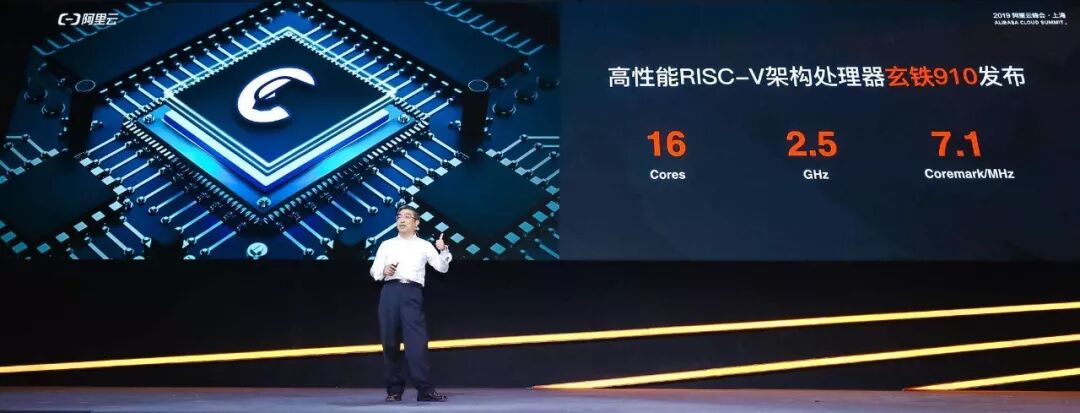 Xuantie 910 ReleaseLawyers representing such groups stated that the RISC-V Foundation’s actions reflect the tensions between the U.S. and China, making it more difficult for the U.S. to become a host for technology standard organizations.Lawyers said it is still unclear whether standard organizations will be allowed to collaborate with Huawei. “But these groups are concerned that U.S. authorities may establish a list of sensitive technologies in closed-door meetings, which will be prohibited from being transferred to China or other entities on the blacklist,” said Brad Biddle, a lawyer representing multiple standard organizations.In June, over twenty standard organizations, including those overseeing SD storage cards and Ethernet and HDMI cables, wrote to U.S. Secretary of Commerce Wilbur Ross, requesting clarification on the rules for collaborating with Huawei.These organizations warned Ross that limiting Huawei could lead to standard-setting moving out of the U.S., resulting in “serious risks,” which could end a long-standing trend of U.S.-based organizations setting de facto standards for the rest of the world, they wrote.The U.S. Department of Commerce issued a consultative opinion in August attempting to clarify this issue, but standard lawyers stated that the rules remain confusing.RISC-V Foundation’s Redmond has not seen a “credible threat” to international cooperation. She told Reuters: “However, we are taking insurance policies to address this type of behavior by establishing companies.”Original article link:https://www.reuters.com/article/us-usa-china-semiconductors-insight/u-s-based-chip-tech-group-moving-to-switzerland-over-trade-curb-fears-idUSKBN1XZ16L
Xuantie 910 ReleaseLawyers representing such groups stated that the RISC-V Foundation’s actions reflect the tensions between the U.S. and China, making it more difficult for the U.S. to become a host for technology standard organizations.Lawyers said it is still unclear whether standard organizations will be allowed to collaborate with Huawei. “But these groups are concerned that U.S. authorities may establish a list of sensitive technologies in closed-door meetings, which will be prohibited from being transferred to China or other entities on the blacklist,” said Brad Biddle, a lawyer representing multiple standard organizations.In June, over twenty standard organizations, including those overseeing SD storage cards and Ethernet and HDMI cables, wrote to U.S. Secretary of Commerce Wilbur Ross, requesting clarification on the rules for collaborating with Huawei.These organizations warned Ross that limiting Huawei could lead to standard-setting moving out of the U.S., resulting in “serious risks,” which could end a long-standing trend of U.S.-based organizations setting de facto standards for the rest of the world, they wrote.The U.S. Department of Commerce issued a consultative opinion in August attempting to clarify this issue, but standard lawyers stated that the rules remain confusing.RISC-V Foundation’s Redmond has not seen a “credible threat” to international cooperation. She told Reuters: “However, we are taking insurance policies to address this type of behavior by establishing companies.”Original article link:https://www.reuters.com/article/us-usa-china-semiconductors-insight/u-s-based-chip-tech-group-moving-to-switzerland-over-trade-curb-fears-idUSKBN1XZ16L New Intelligence AI community detailed usage tutorial, with 8000 AI players and practitioners here!
New Intelligence AI community detailed usage tutorial, with 8000 AI players and practitioners here!